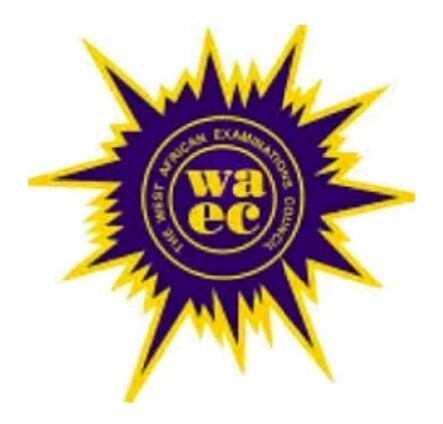Preparing for an exam without a clear syllabus is like embarking on a farming expedition without the necessary agricultural tools.
To maximize your productivity and ensure comprehensive exam preparation, it is vital to familiarize yourself with the Clerical Office Duties syllabus.
Details on WAEC Syllabus for Clerical Office Duties 2024/2025
This syllabus serves as a guide, outlining the topics you need to cover and provides valuable notes on essential concepts.
In this blog post, we will explore the Clerical Office Duties syllabus and recommended textbooks by the West African Examination Council (WAEC).
WAEC Clerical Office Duties
The objectives of the Clerical Office Duties examination are twofold.
Firstly, it aims to test candidates’ understanding of principles and procedures related to performing clerical duties in an office setting.
Secondly, it assesses their ability to apply knowledge of office equipment, materials, and basic clerical tasks, as well as their effective communication skills.
The examination further aims to develop problem-solving abilities in dealing with clerical and secretarial issues while providing a foundation for future business studies.
Scheme of the Examination
The Clerical Office Duties examination consists of two papers: Paper 1 and Paper 2. Both papers are taken in a single sitting.
PAPER 1: This paper comprises fifty compulsory multiple-choice objective questions to be answered within 50 minutes, accounting for 30 marks.
PAPER 2: Comprised of one compulsory case study worth 22 marks and six other questions. Candidates are required to answer any three of the additional questions, each carrying 16 marks. The case study is based on office situations and requires a comprehensive understanding of the issues involved. Paper 2 carries a total of 70 marks and has a duration of 2 hours and 10 minutes.
WAEC Clerical Office Duties Syllabus
Below is a breakdown of the topics covered in the Clerical Office Duties syllabus:
-
The Office:
- Definition, functions, and sections of an office.
- Office personnel roles, including office manager, supervisor, clerks, secretaries, etc.
- Professional image of office staff and essential personal and business attributes.
-
Organization:
- Principles of organization, such as unity of objectives, span of control, delegation, and supervision.
- Organizational structures and charts.
-
Business Transactions:
- Documents used in business transactions, such as letters, invoices, receipts, and purchase orders.
- Methods of payment and payroll handling.
- Overview of tax regimes.
-
Banking:
- Types of banks and accounts.
Cheques and Other Banking Procedures.
-
Stock Procedure:
- Ordering, record-keeping, and control of stock.
-
Office Equipment/Machines:
- Overview of various office machines and their uses.
- Introduction to computer applications and information and communication technology (ICT).
-
Communication:
- Different forms and channels of communication.
- Barriers to effective communication.
- Business correspondence and mail handling.
-
Business English:
- Proofreading, office abbreviations, spelling, word division, and punctuation.
-
Filing and Indexing:
- Methods of classification and filing systems.
- Indexing and cross-referencing.
-
Reference Books and Sources of Information:
- Recommended reference books and specialized sources of information.
-
Post Office Services:
- Postal services, courier services, and agency services.
-
Human Relations:
- Internal and external relations in the office.
- Interpersonal skills.
-
Health, Safety, and Welfare in the Office:
- Identifying health hazards and preventing accidents.
- Staff welfare measures.
-
Pre-Employment Procedures:
- Advertisement, application letters, and curriculum vitae.
- Interview preparation.
-
Entrepreneurship and Smallscale Business:
- Introduction to entrepreneurship and small-scale business ventures.
Recommended Textbooks
- “Secretarial Duties” by John Harrison, Pitman Publishing Ltd.
- “Office Practice for Colleges” by Elendu O. Elendu, New Africa Publishing Co. Ltd., Owerri.
- “Case Studies, A Skills-Based Approach” by Sheila May, Pitman Publishing Ltd.
- “Office Procedure” by John Harrison, Pitman Publishing Ltd.
FAQs
What topics are covered in the WAEC Syllabus for Clerical Office Duties 2024/2025?
The WAEC Syllabus for Clerical Office Duties 2024/2025 covers a range of topics essential for office management and clerical skills. Some key areas include the duties of a clerical officer, office organization and structure, filing systems, record-keeping, communication in an office environment, and the use of office equipment such as computers and photocopiers.
How can I prepare for the WAEC Clerical Office Duties examination using the syllabus?
To prepare effectively for the WAEC Clerical Office Duties exam, start by downloading the official syllabus. Break down each topic, and create a study schedule focusing on one section at a time. Practice past questions and use textbooks on office procedures and clerical work to build a solid understanding of the concepts outlined in the syllabus.
Are there practical components in the WAEC Clerical Office Duties 2024/2025 syllabus?
Yes, the WAEC Clerical Office Duties syllabus includes practical aspects, especially related to office equipment and tools. Students are expected to know how to use common office machines like typewriters, computers, photocopiers, and fax machines. Practical knowledge of these tools may be tested through either practical examinations or theory questions requiring detailed descriptions of their use.
Conclusion
To excel in the Clerical Office Duties examination, it is crucial to begin your exam preparations with a thorough understanding of the syllabus.
This blog post has provided an overview of the topics covered, from the functions of an office to communication skills and office equipment.
By following the syllabus and utilizing the recommended textbooks, you will be well-equipped to tackle the exam confidently. Remember, proper preparation is the key to success!






